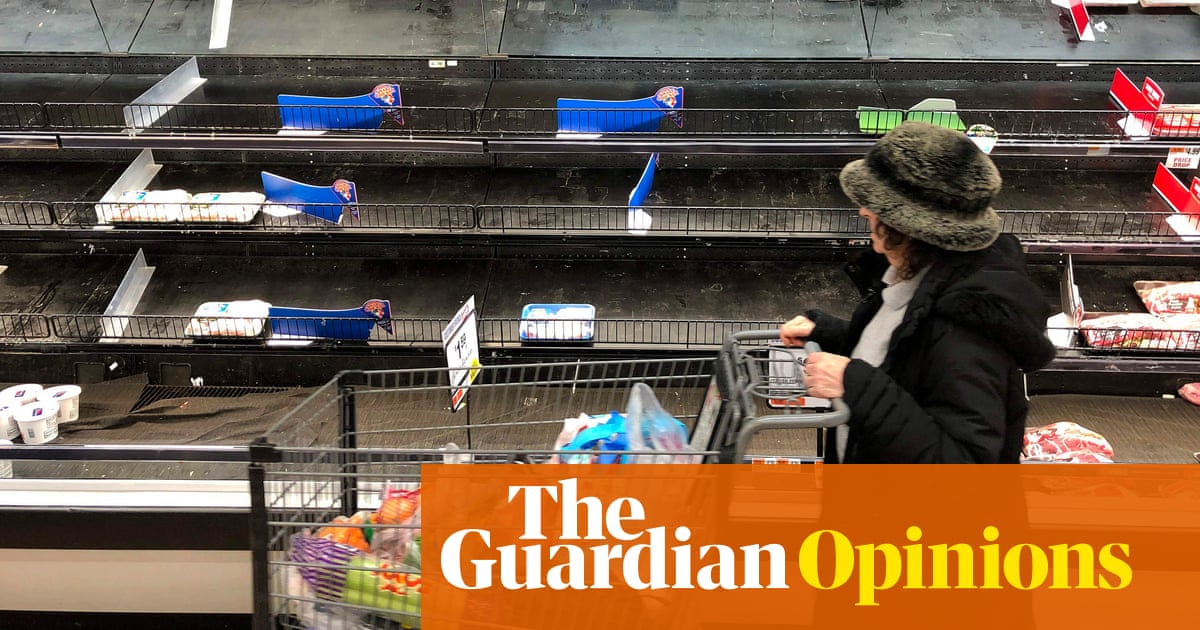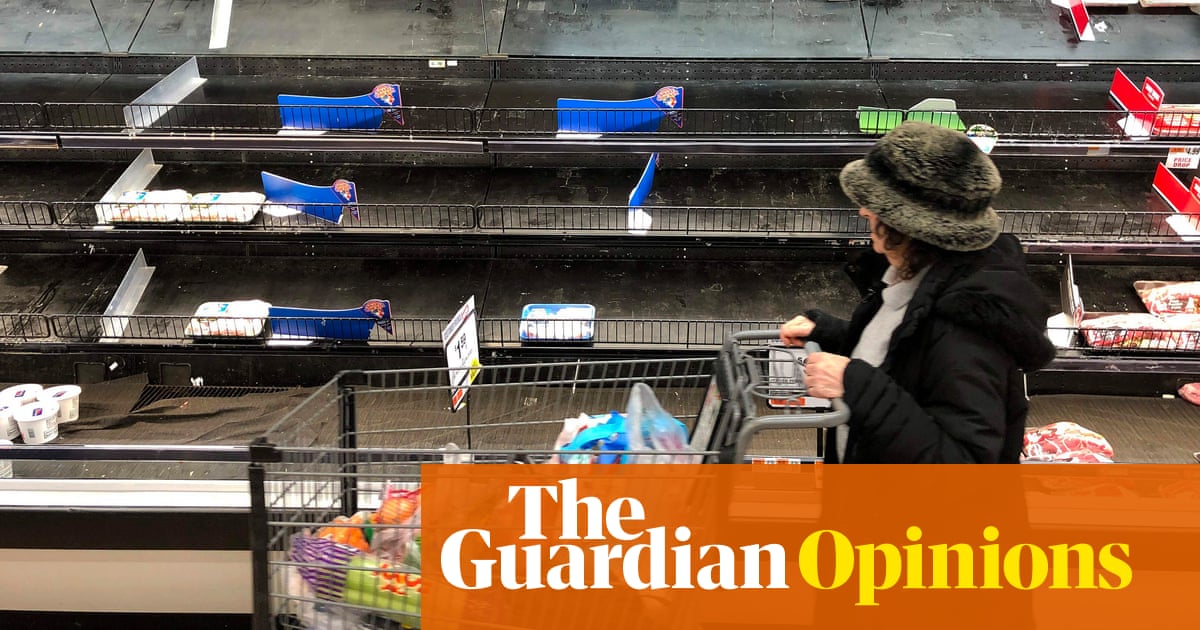Farm and food workers have been designated essential, but they face an agonizing choice: stay home without income, or go to work and risk infection

Mike Pence called US farm and other food workers heroic Americans last week for doing vital work amid the coronavirus pandemic and said the government would work tirelessly to ensure their workplace safety.
Earlier in the month, the Department of Homeland Security had classified workers pulling onions, collecting eggs, processing beef and others as essential, and part of the critical infrastructure workforce that has a special responsibility to maintain [a] normal work schedule.
Though their designation as essential workers is apt, relief measures recognizing their importance havent been offered. Congresss $2tn pandemic stimulus package specifically excludes food workers, leaving them without basic safety equipment like masks and hand sanitizer, benefits like healthcare and childcare, protections like physical distancing, and hazard pay. Food workers have also been left out of state aid.
Protections are urgently needed. While Americans have been instructed to maintain 6ft from others, food workers labor shoulder-to-shoulder in the countrys mega-processing plants. Farmworkers pack into buses to and from orange groves and other harvest sites. They share cramped rooms, even beds, with strangers, and lack ventilation or access to sanitation. The company isnt doing anything to give workers space. Were close to each other all the time, a Tyson poultry worker in Arkansas stated. Shes a member of Venceremos, a group of poultry workers petitioning companies to provide sick leave.
Yet for many food workers, absence from work due to illness risks termination. And these workers have high rates of hypertension and respiratory impairments conditions linked to severe Covid-19 disease because of their proximity to chemicals known to be lung irritants. Essential food workers are paid minimum wages while enduring perilous conditions. They face an agonizing choice: stay home without income for rent or go to work and risk infection.
Were in a country where people want our labor but dont care about our lives. Our human rights have been denied, but our work is being deemed essential. The injustice of the system is laid bare, explained Enrique Balcazar, an organizer with Migrant Justice, a dairy worker-led organization pressing the state of Vermont to include workers needs in its crisis response.
As much of the country shelters in place to slow the spread of the virus, we put our lowest-paid workers at the frontlines of battle with no support. But the nations 2.4 million farmworkers, 148,000 processing workers and other food chain workers are imperative to our economy, collective health and basic survival. They support the national interest. Danger to food workers is a danger for us all. And some of them are starting to die while working to feed us.
The worker community is afraid. Farmers are worried. No one is going to be able to replace us when workers get sick, Pedro, a Vermont dairy worker and Migrant Justice member, told us this week. This raises an urgent question: When we dont protect workers who pick, process, and pack our food, what will happen to our food supply and all of us?
Chuck Grassley, the Senate finance chairman, told Bloomberg Law:I dont think anybodys going to back legislation that would say were going to start giving healthcare to undocumented workers. Meanwhile, the Occupational Safety and Health Administration says it is helpless even though Congress has obligated it to keep workers safe from grave danger. Workers have little recourse.
We can and must do better. And were at a pivotal juncture, with peak harvest about to begin. As a result of the pandemic, there have been mass H-2A visa suspensions, closed borders, severe worker layoffs. Our farm and food worker labor pool could shrink to the brink of collapse. If we dont address this looming problem, an unprecedented national hunger crisis will be imminent.
In order to flatten the curve, the government needs to provide resources to those who dont have the possibility of social distancing and sheltering in place. Its immoral to expect that we carry the burden of this contradiction, asserted Gerardo Reyes, a leader of the Coalition of Immokalee Workers, a tomato picker-led organization thats calling on the state of Florida for emergency provisions for farmworkers. The Coalition is based in Immokalee, a town of 25,000 farmworkers with no hospitals, a situation that Reyes describes as dry tinder in the path of the wildfire that is Covid-19.
Essential workers in US fields and processing plants are experts in what is needed to safeguard their own health and safety. They should be invited to play a central role in planning our food systems workplace emergency responses. Worker participation in the design of their protections would create a more robust, resilient food system that could weather this and future pandemics.
We call on the public, businesses, states and Congress to support workers appeals. The pleas made by the Coalition of Immokalee Workers, Migrant Justice and Venceremos, and other farm and food worker organizations must be acted on. This is no time to be in denial. Theres an emergency happening, warned Magaly Licolli, a founding member of Venceremos.
We have a responsibility to act decisively. Time is running out.
-
Vera L Chang is a National Science Foundation fellow, Clif Family Foundation fellow, Berkeley Food Institute researcher, and PhD student in environmental science, policy and management at UC Berkeley
-
Seth M Holmes, PhD, MD, is a physician and anthropologist, associate professor and chair of society and environment and medical anthropology at UC Berkeley and UC San Francisco and author of Fresh Fruit, Broken Bodies: Migrant Farmworkers in the United States
Read more: https://www.theguardian.com/commentisfree/2020/apr/14/will-we-have-food-coronavirus-pandemic


Recent Comments